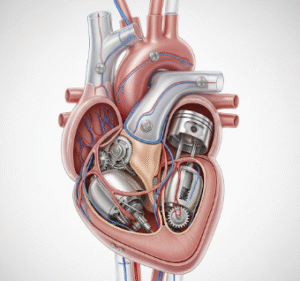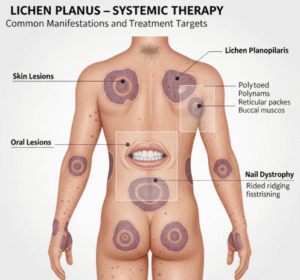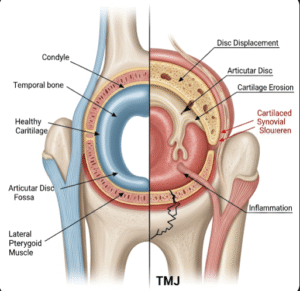Overview
Chronic stress is a prolonged state of mental or emotional strain resulting from ongoing pressure, life challenges, or adverse circumstances. In Korea, where modern lifestyle, work culture, and academic pressures can contribute to long-term stress, specialized mental health clinics and wellness centers provide assessment, counseling, and stress management programs.
What is Chronic Stress?
Chronic stress occurs when the body’s stress response is activated for extended periods, leading to sustained release of stress hormones such as cortisol. Unlike acute stress, which is short-term and sometimes beneficial, chronic stress can negatively affect mental, emotional, and physical health.
Symptoms
- Persistent anxiety, irritability, or mood swings
- Difficulty concentrating or memory problems
- Sleep disturbances or insomnia
- Headaches, muscle tension, or chronic pain
- Gastrointestinal problems (e.g., stomachaches, acid reflux)
- Fatigue and low energy
- Changes in appetite or weight
- Emotional detachment or feelings of being overwhelmed
Causes
- High-pressure work or academic environments
- Financial difficulties
- Relationship or family conflicts
- Chronic illness or caregiving responsibilities
- Traumatic life events
- Poor work-life balance
Risk Factors
- Long working hours or excessive workload
- Perfectionism or high self-expectations
- Lack of social support
- Pre-existing mental health conditions (anxiety, depression)
- Unhealthy coping mechanisms (smoking, alcohol, poor diet)
- Urban living with environmental stressors
Complications
- Increased risk of cardiovascular disease, hypertension, and stroke
- Sleep disorders and chronic fatigue
- Weakened immune system and susceptibility to infections
- Mental health disorders, including anxiety and depression
- Gastrointestinal disorders and weight changes
- Cognitive impairments and reduced productivity
Prevention
- Regular physical activity and exercise
- Mindfulness practices, meditation, and relaxation techniques
- Balanced diet and adequate sleep
- Strong social support and maintaining healthy relationships
- Time management and setting realistic goals
- Seeking professional help when stress becomes overwhelming
Treatment Options in Korea
Chronic stress management in Korea focuses on mental health support, lifestyle modification, and therapeutic interventions:
- Psychological therapies:
- Cognitive Behavioral Therapy (CBT)
- Stress management counseling
- Mindfulness-based stress reduction (MBSR)
- Relaxation techniques such as deep breathing and progressive muscle relaxation
- Medications:
- Antidepressants or anti-anxiety medications for severe stress or related conditions
- Sleep aids for insomnia under medical supervision
- Lifestyle and wellness interventions:
- Exercise programs and yoga
- Healthy nutrition and sleep hygiene
- Workplace and lifestyle adjustments to reduce stressors
- Participation in support groups or wellness programs
- Specialized hospitals and centers in Korea:
- Samsung Medical Center Psychiatry & Stress Clinic, Seoul National University Hospital, Asan Medical Center, Severance Hospital
- Multidisciplinary teams including psychiatrists, psychologists, counselors, and wellness coaches
- Follow-up care:
- Regular mental health check-ups
- Monitoring progress in coping strategies and therapy outcomes
- Long-term support to maintain resilience and prevent relapse













